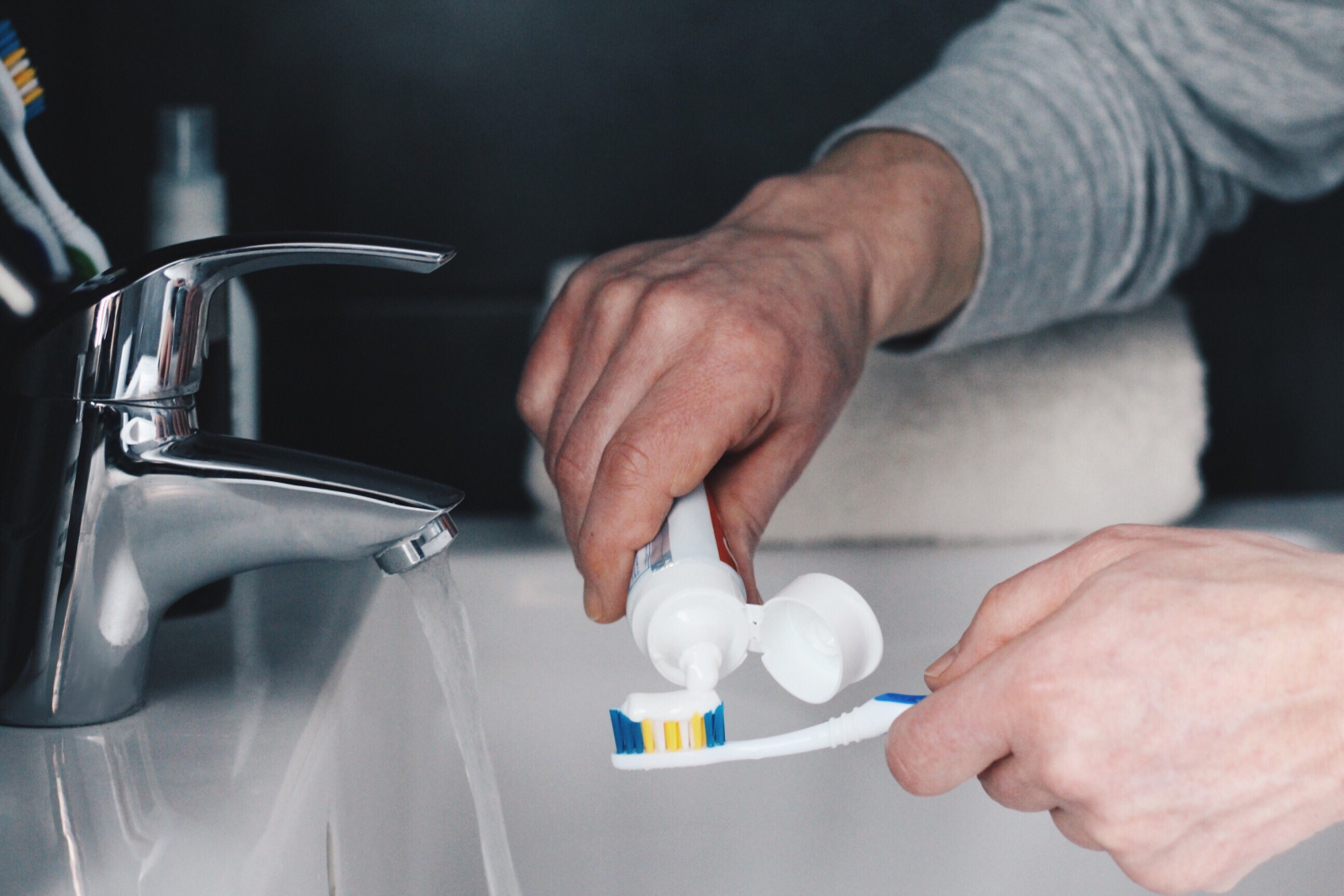We all know it’s good dental hygiene to clean our teeth twice each day, for 2 minutes. That’s because it takes a minimum of 12 hours for potentially damaging plaque to form and build up on our teeth.
But, when’s the best time to brush?
First thing’s first…
It might not be what you’d expect, but you should brush your teeth first thing in the morning, before you eat or drink anything.
Bacteria can build up in your mouth overnight, accounting for any bad taste, breath, or oral film that many people wake up with.
By using a toothpaste which contains fluoride, you’ll also be arming your teeth with a protective coating before your first meal of the day.
Should you brush immediately after eating?
Again, perhaps not what you’d expect, but we’d always recommend waiting around an hour after eating or drinking before brushing your teeth.
The acid in food can weaken the enamel on your teeth, so if you brush too soon after eating, you risk unintentionally damaging your dental surfaces.
Many fruits and alcoholic beverages are highly acidic, but you might be surprised that things like coffee and toast are too.
The bacteria in our mouths metabolise sugary foods, which can also result in damage to tooth surfaces and a deterioration in gum health.
So, what to do?
A great way to rebalance the pH of your mouth immediately after eating, is to stimulate saliva production. You can do that by chewing sugar-free gum, or even eating a piece of cheese.
If you’d like to freshen thing up, you could use an oral rinse, mouthwash, or spray after eating, instead of picking up your toothbrush.
It’ll also help to stay hydrated throughout the day. It may not be exciting, but water is the healthiest beverage for your teeth.
Always brush before bed
It’s best to avoid eating or drinking anything other than water for at least an hour before you go to bed. Not only could this help you to sleep better, but it’ll prevent your teeth being damaged by brushing soon after eating acidic or sugary foods.
However, that’s not a free pass to skip brushing if you’ve eaten close to bedtime.
Brushing helps to minimise the levels of cavity-causing bacteria in your mouth, which saliva helps to wash away during your waking hours.
As you produce less saliva when you’re asleep, is all the more important to brush before you go to bed. You don’t want to provide the buffet at an all-night bacteria party in your mouth!
You can brush too much
Unless you’re very skilled and gentle, we don’t recommend brushing more than 3 times each day. Over-brushing can cause other problems, including gum recession.
A few simple oral hygiene tips:
- Establish a habit of brushing twice daily, for around 2 minutes each time.
- We’d recommend using an electric or soft toothbrush.
- Replace your brush every 3 months, or as soon as the bristles start to splay.
- Don’t brush too hard – you could damage your gums.
- Don’t neglect your gum-line and between your teeth.
- If you find floss difficult to use, try an interdental brush, or invest in a water flosser.
- Set reminders on your phone if you find it difficult to remember when to brush.
- Keep a dental kit in your bag or desk drawer just in case you want to freshen up.
- Carry sugar free gum to stimulate saliva production after you eat.
- Schedule regular check-ups with White Gables Dental Practice.
